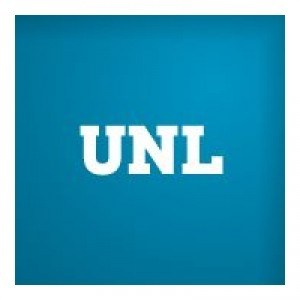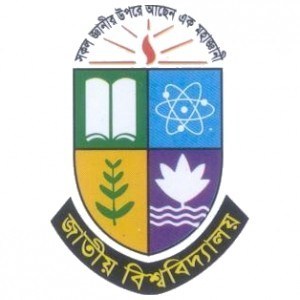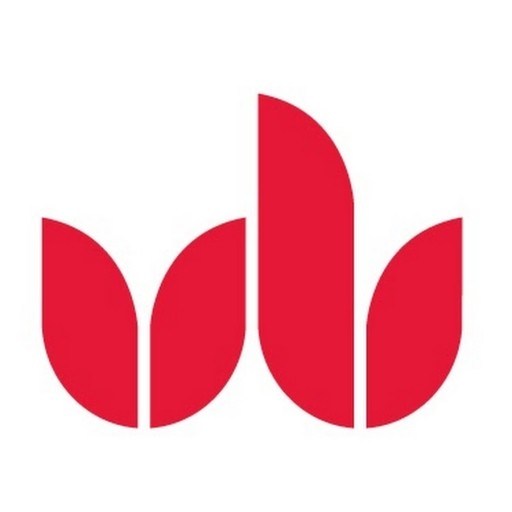Photos of university / #uncchapelhill
Our residential master’s program balances training in mass communication skills, concepts and research methods for individuals interested in entering mass communication professions, professional communicators who want more education in a specialized field or individuals interested in mass communication research and teaching. Because we believe that our professional master’s curricula should prepare students to be leaders in the 21st-century workplace, this balance ensures an elevated discussion of the journalism and mass communication professions, how they work and where they’re going.
Total enrollment in our two-year residential master's program is usually 30 to 50 students (15 to 25 for each entering cohort).
We offer four tracks in the residential master’s program: a professional track, a research track, an Interdisciplinary Health Communication track and an J.D./M.A. dual-degree track in conjunction with the UNC School of Law. For UNC-Chapel Hill undergraduates, the MJ-school partners with the Curriculum in Environment and Ecology to offer the Environment and Science Communication M.A./B.A. dual degree. Regardless of track, students are taught to critically examine the role of mass communication in society, and all students are provided with a firm grounding in theory and analysis. By setting high standards for both scholarly and professional achievement, we prepare graduates to be leaders and critical thinkers, regardless of their career path. Please refer to the attached worksheets for each track.
All residential master’s students, regardless of track, are required to take the following two courses:
- MEJO 701: “Mass Communication Research Methods”
- MEJO 740: “Mass Communication Law”
Professional Track
The professional track is designed to educate students in an area of specialization within the field of mass communication in preparation for a career in industry. Areas of specialization within the professional track can be grouped more broadly into those that are news/reporting-focused, regardless of platform and topic (e.g., business and media, electronic and broadcast journalism, science and medical journalism, reporting, visual communication: interactive design and visual communication: photo-video) and strategic communication-focused, which include a mix of advertising, marketing communication, public relations and visual communication: graphic design.
Students in the professional track are required to complete 33 credit hours of coursework at the 400 level or above, including two courses outside of the MJ-school. Students have the option of completing a traditional research thesis or a nontraditional thesis project for three credit hours.
In addition to MEJO 701 and MEJO 740, students in the professional track are required to take the following courses:
- MEJO 753: “Reporting and Writing News” or MEJO 732: “Public Relations Writing”
- MEJO 782: “Multimedia Storytelling”
Professional-track students may choose from the following areas of specialization and may take a variety of advanced MEJO courses.
- Business and media. Prepares students for careers in journalism (business reporters, as well as editors), media management, advertising and public relations. This specialization emphasizes the interchange between the media world and the business world, from how media cover business and economics to the evolving nature of media as a business and new media business models. Required courses: MEJO 452: “Business Reporting” and MEJO 551: “Digital Media Economics and Behavior.”
- Electronic communication. Prepares students for careers in radio, television and related industries. Students learn all the aspects of generating and delivering content for electronic media platforms. Students leave the program with advanced skills in writing for electronic media, and audio/video acquisition and editing. The capstone experiences are the award-winning television newscast “Carolina Week” and the award-winning radio newscast “Carolina Connection,” where students fill a range of reporting and production roles. Required courses: MEJO 421: “Electronic Journalism” and MEJO 422: “Producing Television News.”
- Science and medical journalism. Prepares students to work as science and medical journalists. Students also take at least two courses in the UNC Gillings School of Global Public Health. In the last semester of the second year, students have the option of doing either a traditional research thesis or a thesis project in any media (print, radio, television or any combination of all three). Required courses: MEJO 560: “Medical Journalism” and MEJO 562: “Science Documentary Television.”
- Reporting. Prepares students for careers in all facets of reporting, including research, analysis, writing and editing. Applicants who intend to specialize in reporting should possess an insatiable curiosity about the world. They should exhibit a strong interest in the changing media landscape and the possibilities for exploring and explaining complex issues to news consumers. Required courses: MEJO 754: “Specialized Reporting” and MEJO 890: “Narrative Storytelling”, one cross-platform such as MEJO 463: “Newsdesk” or MEJO 484: “Information Graphics.”
- Strategic communication. Prepares students for careers leading to management positions in corporations, nonprofit organizations, government or advertising or public relations agencies. Students with this specialization take skills and theory courses in public relations and/or advertising as well as outside areas of interest, including business, organizational communication and health communication. Required courses: MEJO 479: “Market Intelligence.” MEJO 730: “Public Relations Foundations” or comparable advertising course required. Students exempt from MEJO 753: “Reporting and Writing News.“
- Visual communication:
- Graphic design. Prepares students for careers in publication design, editing, informational graphics and online storytelling. In this specialization, issues related to the research, reporting and presentation of visual media are explored, with an emphasis on the technical skills required to create compelling stories. Students must take (or gain an exemption from) MEJO 182 “Introduction to Graphic Design.” Required course: MEJO 581: “Multimedia Design”. In addition, students must work with their advisers in this specialization to determine the correct combination of the following classes: MEJO 457: "Advanced Editing," MEJO 482: "News Design," MEJO 483: "Magazine Design," MEJO 484: "Information Graphics," MEJO 486: "Motion Graphics," MEJO 585: "3D Design Studio," MEJO 584: "Documentary Multimedia Storytelling," MEJO 587: "Carolina Photojournalism Workshop" and MEJO 782: "Multimedia Storytelling."
- Interactive multimedia: Prepares students for careers in the creation and programming of interactive and mobile storytelling, including graphics, design and photo/video journalism. In this specialization, issues related to the research, reporting and presentation of visual media are explored, with an emphasis on the technical skills required to create compelling stories. Students must take (or gain an exemption from) MEJO 187 “Introduction to Multimedia.” Required course: MEJO 581: “Multimedia Design”. In addition, students must work with their advisers in this specialization to determine the correct combination of the following classes: MEJO 586: "Intermediate Multimedia," MEJO 583: "Multimedia Programming," MEJO 584: "Documentary Multimedia Storytelling," MEJO 587: "Carolina Photojournalism Workshop" and MEJO 782: "Multimedia Storytelling."
- Photo/video. Prepares students for careers in photojournalism and video documentary storytelling for online audiences. In this specialization, issues related to the research, reporting and presentation of visual media are explored, with an emphasis on the technical skills required to create compelling stories. Students must take (or gain an exemption from) MEJO 180: “Beginning Photojournalism.” Required course: MEJO 581: “Multimedia Design.” Students exempt from MEJO 782: “Multimedia Storytelling.” In addition, students must work with their advisers in this specialization to determine the correct combination of the following classes: MEJO 181: "Intermediate Photojournalism," MEJO 480: "Documentary Photojournalism," MEJO 481: "Advanced Photojournalism," MEJO 582: "Multimedia Narratives," MEJO 584: "Documentary Multimedia Storytelling" and MEJO 587: "Carolina Photojournalism Workshop."
Research Track
The research track is designed for students interested in pursuing a doctoral degree, a career in academia (teaching and research) or research positions in industry or government.
In addition to MEJO 701 and MEJO 740, students in the research track are required to take MEJO 705: “Theories of Mass Communication.”
Paths in the mass communication track can be very diverse. Students learn the theory and research methods they need to teach at the college level or to pursue a doctorate in mass communication. They can study mass communication law or history, media effects, new communication technologies or international communication, among other subjects. Depending on the course of study they select, they may also be prepared for a variety of research positions in the public and private sectors. Students in this track do not take professional skills courses such as news writing and editing.
Interdisciplinary Health Communication Track
The Interdisciplinary Health Communication track provides students with specialized training in the multifaceted field of health communication and builds expertise for applied practice, academic and research settings. The IHC master’s track offers a broadened program to include the study of how to effectively communicate with diverse audiences about health issues. Students will learn about the possibilities of traditional as well as electronic forms of media and the psychology of persuasion. Each student will complete a project or thesis on a health communication topic.
The Interdisciplinary Health Communication track includes a core of 18 credits in journalism and mass communication and nine credits in information science, psychology and public health.
In addition to the core curriculum, students in the IHC master's track are required to complete a sequence of courses in an area of specialization. Four specializations are offered: information science, science and medical journalism, public health and social marketing.
J.D./M.A.Track
The J.D./M.A. dual degree program is intended to create an efficient yet academically sound program of study for students interested in pursuing graduate studies in journalism and mass communication, and in law. The program is intended for students who plan to practice mass communication law, plan to practice professionally in a communication-related field such as journalism or public relations with a law-related emphasis, plan to pursue academic careers in law and mass communication fields or plan to pursue a doctorate in a related field.
- Application fee (non-refundable $85)
- Transcripts (complete, not selected courses)
- One unofficial transcript from each university attended must be uploaded within the application. All unofficial transcripts must be uploaded to your application in order for your application to be reviewed. Please do not mail transcripts as part of your admission application; we only accept unofficial uploads for application evaluation. If you are offered admission, one official transcript for each university attended will be required prior to the first day of the term.
- Current letters of recommendation
- The email address of three recommenders will be required within the application for electronic submission.
- Standardized test scores
- (GRE, GMAT, etc.; no more than 5 years old.)
- Statement of purpose
- Resume/CV
- TOEFL or IELTS score (no more than two years old)
- Completed financial certificate
In addition to the University’s required application materials, applicants should review the information below for additional expectations or application requirements.
- For PhD & Research MA – A brief statement describing background, career goals and research interests. For Professional & IHC MA: A brief statement describing background, career goals and areas of interest. This should be double-spaced and no longer than two pages for master’s applicants and no longer than four pages for doctoral applicants.
- Research and Professional Master’s applicants should include a writing sample, such as an academic paper or magazine or newspaper article. Doctoral applicants should submit a chapter from their master’s thesis or a copy of an academic paper.
- All applicants should also select an area of interest (via the Area of Interest/Specialization drop-down box within your application).
- Applicants choosing a Visual Communications area of interest/ specialization must submit a portfolio of their work to the School of Media and Journalism.
Scholarships
Candidates for funding are interviewed in February in Chapel Hill or through video conferencing. Funding candidates will receive notification to inform them of interview dates. Decisions will be made shortly after the interviews, and candidates will be notified as quickly as possible. Students admitted to the MATC program and the Certificate in Technology and Communication program are not eligible for the fellowships listed below.
- Roy H. Park Fellowships
- Peter DeWitt Pruden Jr. and Phyllis Harrill Stancill Pruden Fellowship









